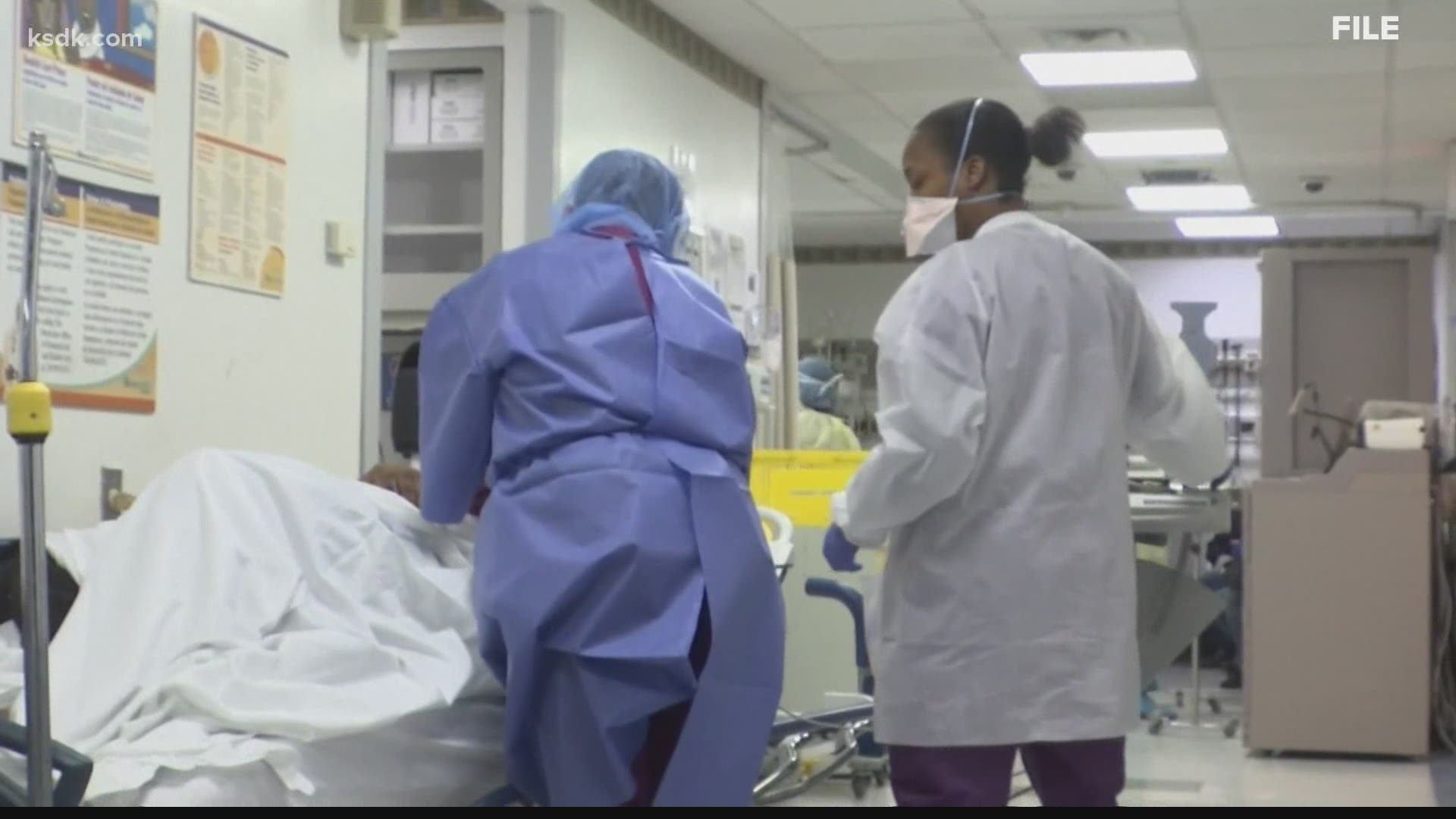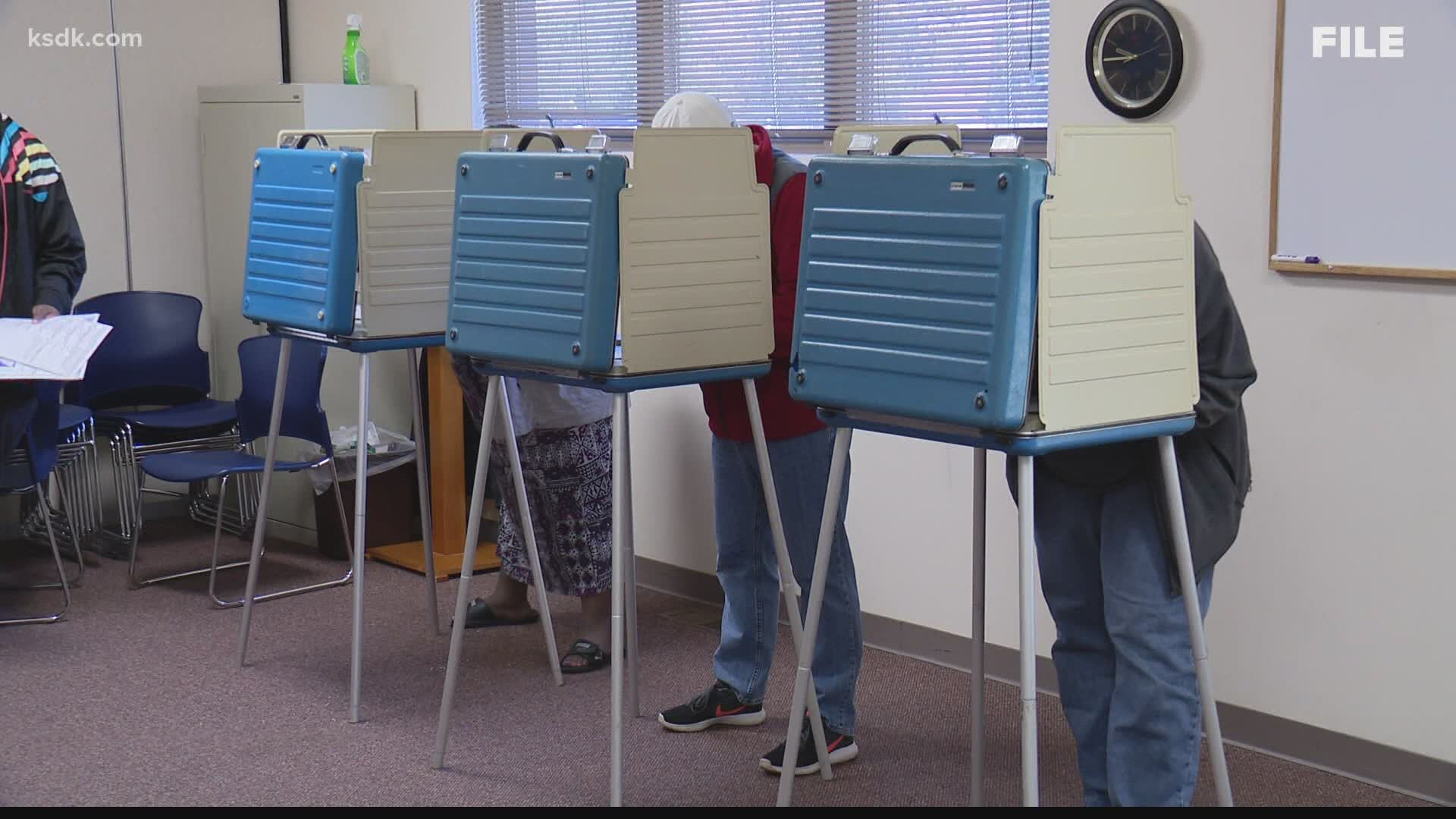ST. LOUIS — Washington University is leading a study that will test whether low doses of the antimalaria drug chloroquine can prevent COVID-19 infection or decrease its severity in front line health care workers.
An estimated 30,000 such workers from across the globe will participate in the clinical trial, which the collaborative is calling the "Crown Coronation" trial.
The collaborative and the trial are funded by the COVID-19 Therapeutics Accelerator, an initiative with contributions from an array of public and philanthropic donors, intended to support research and development to bring effective, accessible COVID-19 treatments to market as quickly as possible, according to a press release from the university.
Washington University School of Medicine in St. Louis is the clinical coordinating center for this international trial. The investigators comprising the CROWN Collaborative are from prominent research organizations in African, European, North American and South American countries, including Cameroon, Canada, Ireland, Ghana, Peru, South Africa, Switzerland, the United Kingdom, the United States, and Zambia.
“Because of their repeated close contacts with infected patients, frontline health care workers in all parts of the world have a higher risk of contracting COVID-19 than most members of the general public,” said one of the study’s principal investigators, Michael S. Avidan, MD, the Dr. Seymour and Rose T. Brown Professor and head of the Department of Anesthesiology at Washington University. “In some places, more than 10% of those who have become infected are health care workers. There is an urgent need to identify drugs that are effective at preventing infection or mitigating its severity.”
The study will recruit front line health care workers from across the world, including those from lower- and middle-income countries.
“An important way to protect the public at large is to do our best to protect the health-care workers,” Avidan said “It is very important that there is a global effort to protect health-care workers because when it comes to COVID-19, we’re all in this together. Finding ways to keep health-care workers from getting seriously ill is one of the most important ways to protect vulnerable people everywhere.”
During the trial, researchers will study three different but well-established chloroquine dose schedules in healthy people, the release said. Health care workers in the trial will be divided randomly into four groups. Three of the groups will receive chloroquine at various doses. The fourth group will receive an inactive placebo.
The researchers want to determine the lowest dose required to provide a benefit. Health care workers in the study will receive lower doses of chloroquine than have been given in most other trials that have focused on treating patients already sick with COVID-19. Lower doses of chloroquine should have fewer side effects. With a limited supply of chloroquine globally, if a lower dose turns out to be just as effective as a higher dose, many more people could benefit from the drug.
“When people have to travel to parts of the world where malaria is a problem, they often take low doses of chloroquine to help prevent infection,” said Avidan. “We want to learn whether this drug might work in a similar fashion in the case of COVID-19, or at the very least, whether low-dose chloroquine might help prevent the severe and life-threatening complications associated with the illness.”
The study will last five months. Health care workers who participate will take chloroquine or a placebo for the first three months and will be monitored for another two months. Those previously infected with COVID-19 or those who have underlying medical problems that might make it unsafe to take chloroquine, such as heart ailments, will not be eligible to participate.
Data from the trial sites will be compiled at University College London. Laurence Lovat, MD, PhD, a professor of gastroenterology and biophotonics, is the study leader in the United Kingdom.
“Our hypothesis is that chloroquine may decrease the COVID-19 burden by decreasing entry of the novel coronavirus into host cells and by inhibiting viral replication,” Lovat said. “Furthermore, with its anti-inflammatory properties, chloroquine might dampen the exaggerated and unregulated immune response in the host, which often is responsible for the unpredictable and severe complications of COVID-19.”


